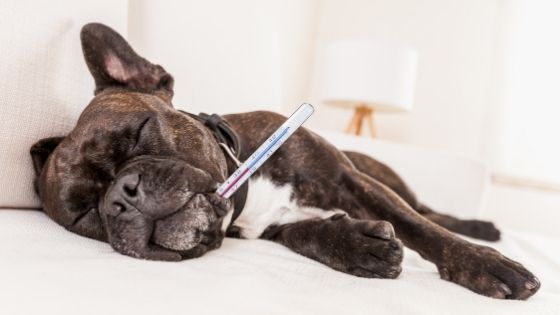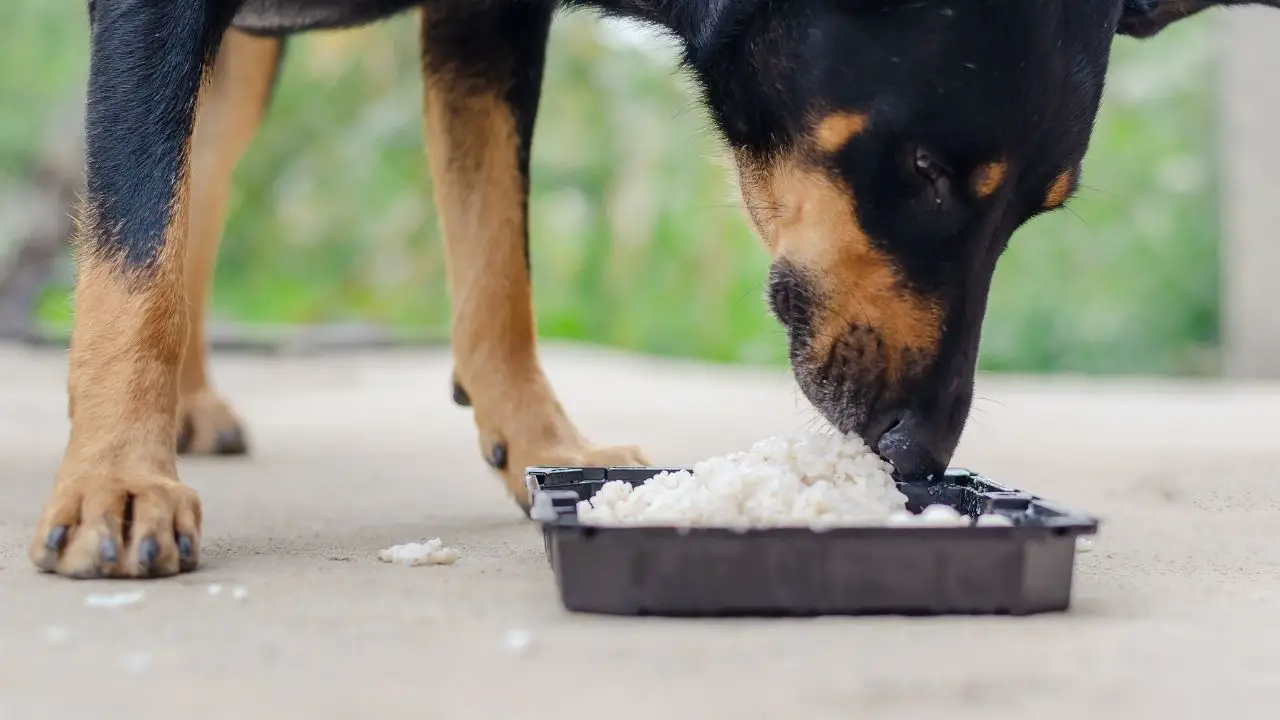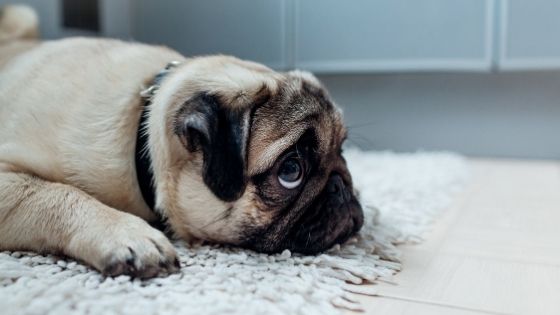Why finding mucus in your dog’s stool is actually a good thing
Yep, you read that right, if you see a small amount of mucus in your dog’s stool it’s a good thing because it is perfectly normal! Most mammals (humans included) will have a small amount of normal mucus in their poop.
Mucus lubricates the intestinal tract making it easy for the feces to make its way through the gi system and onto your lawn. Without it, your dog would have a pretty difficult time using the bathroom.
Normal mucus looks like a thin jelly-like, slimy substance usually covering your dog’s poop. I bet you never thought you would want to learn so much about your dog’s poop, did you?
When is mucus in the feces, not a good thing?
Mucus is usually not a good thing when you notice one of the following:
- Excessive mucus – large, thick globs of mucus
- Other symptoms – When there are other symptoms present with mucus such as vomiting, diarrhea, loss of appetite, or lethargy
- Bloody mucus – red-colored mucus
How the food your dog eats affects mucus in the stool
Many times if your dog has stool with bloody mucus it can be due to a dietary indiscretion and this includes a sudden change in your dog’s diet, a food intolerance, or eating something out of the ordinary like getting into the garbage.
1. Recent diet changes
If you have recently changed your dog’s food, this can cause some stomach upset which many times comes along with mucus-y diarrhea. If you are switching diets it is always recommended that you do so slowly. A good rule of thumb is to switch diets over a period of one or even two weeks
Most veterinarians will recommend using the 25% rule as pictured below
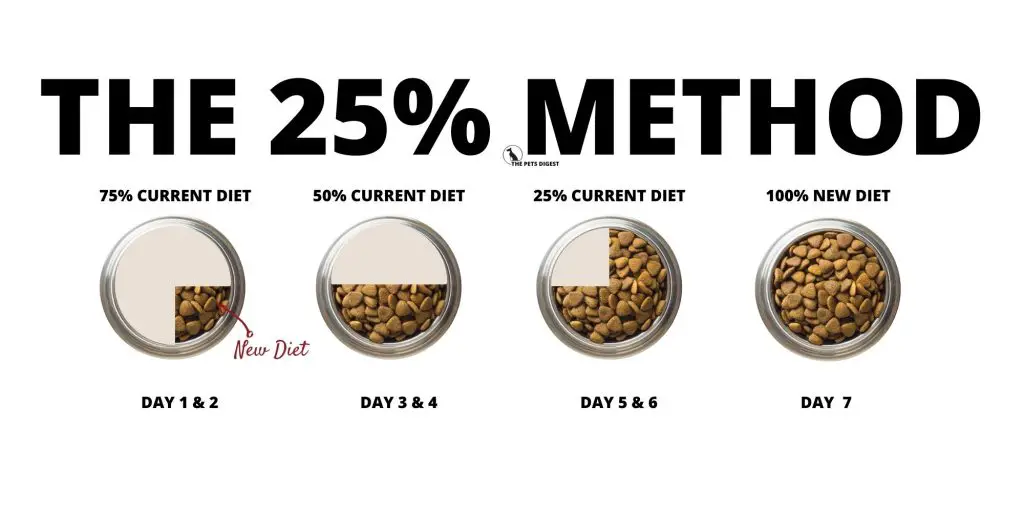
2. Food intolerance
Food intolerances differ from food allergies in that it is something that you will usually notice right away, whereas allergies may take some time to develop.
If you suspect that your dog’s mucus in the stool is due to a food intolerance speak with your vet immediately.
3. Food allergies
Is your dog allergic to their current diet? Are you noticing other clinical signs of food allergies like itchy skin, red eyes, and skin, or constant licking? If so the cause of excessive mucus in the stool may be a food allergy.
What other things can cause mucus in the stool
Stress
Yes, stress can wreak havoc on your dog’s gastrointestinal system! Irritable bowel syndrome can oftentimes cause diarrhea with mucus and while there are other causes of the syndrome besides stress it remains to be a leading factor in the development of the syndrome. Anxious and stressed dogs can develop colitis which is large bowel diarrhea and can present with excessive mucus in the stool.
Don’t confuse IBS with IBD! If you want to know how to differentiate the two read our blog article What’s the difference between IBS and IBD?
Viruses
Viruses such as parvovirus in puppies (and unvaccinated adults) can oftentimes cause bloody mucus in the stool
Diseases
Diseases like hemorrhagic gastroenteritis and irritable bowel disease can cause what seems to be an excessive amount of bloody mucus in the stool
Parasites
While quite cringeworthy to think about your dog could be infected with parasites. This is especially true with puppies that are basically like toddlers because they sniff and taste literally everything without discretion. This means that your dog has no problem inspecting another dog’s leftover poop and possibly giving it a taste. I know disgusting right? But this is a common way that pups pick up diseases and parasites.
Parasites like worms and giardia are common culprits of bloody diarrhea with mucus in dogs.
Bacteria
Sometimes bacterial overgrowth like in dogs affected by Small Intestinal Bacterial Overgrowth (SIBO) or clostridium overgrowth can cause diarrhea with mucus.
Tumors or polyps of the Intestinal Lining
If the intestinal lining is covered with polyps or tumors your dog may present with some diarrhea with mucus.
What should I do if I see a lot of mucus or bloody mucus in my dog’s stool?
Contact your vet
If you see an excessive amount of mucus in your dog’s feces and especially if you see blood or the symptoms have been going on for more than 24 hours call your veterinarian to see if you should make an appointment to come in. If you notice these things along with other symptoms of illness like vomiting, lethargy (acting very tired and sluggish), or diarrhea you may want to visit an emergency room.
When you visit the vet, they will most likely want to run multiple tests including a fecal. Make sure to take a fresh (within a couple of hours) sample if possible, this will make the vet’s job a lot easier and they can run the fecal right away usually while you’re in the clinic and you can get some answers immediately.
Depending on what your dog’s issue is your vet will prescribe medications like dewormers or metronidazole. If your dog’s state is severe an overnight stay with intravenous fluids may be warranted.
Don’t feed your dog
During an episode, while it is most likely that they won’t want to eat anyway refrain from offering any type of food to tempt them to eat at least 5 hours after an episode and you have your vets okay. After your dog has stopped vomiting or no longer has diarrhea you can introduce food in the form of a bland diet.
Make sure they are hydrated
While you won’t want to feed for a couple of hours to give your dog’s stomach a chance to rest, water is fine. The goal is to make sure they are adequately hydrated so keeping freshwater out is a good idea.
What you can do as a pet owner to prevent excess mucus
- Make sure your pup isn’t able to get in the garbage, always keep it locked away and out of reach of your dog
- Check your pup’s poop often. That’s right, make sure you are constantly on poop inspection duty. Believe it or not, poop can tell a lot about your dog’s health. While it may sound disgusting, the goal is to learn what normal poop looks like for your pet so that you can tell when it is abnormal. When picking up the poop inspect it for parasites, consistency, color, and of course excessive mucus.
- Get your pup dewormed regularly. As a puppy, your dog will receive multiple doses of dewormer within the first few months of life. After you can place them on a monthly dewormer like Heartgard to keep endoparasites at bay.
- Keep your annual visits with the veterinarian. This way your vet can do an annual fecal where they will look for abnormalities and nip it in the bud before it becomes an issue.
- Introduce probiotics into your pet’s diet After your dog has overcome the episode, ask your vet about incorporating pre-and probiotics can be helpful in replenishing your pup’s gut flora. If you want to learn about 4 that we like you can read our article here.
- Switch your dog’s food slowly over a period of one to two weeks
- Check the expiration dates on your dog’s food and treats
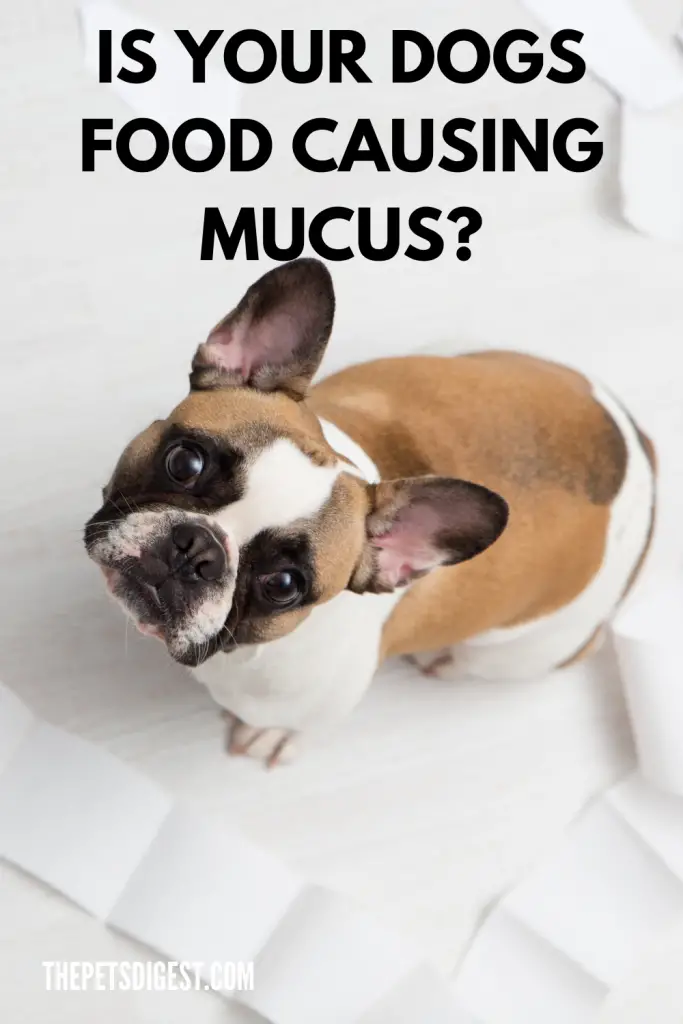
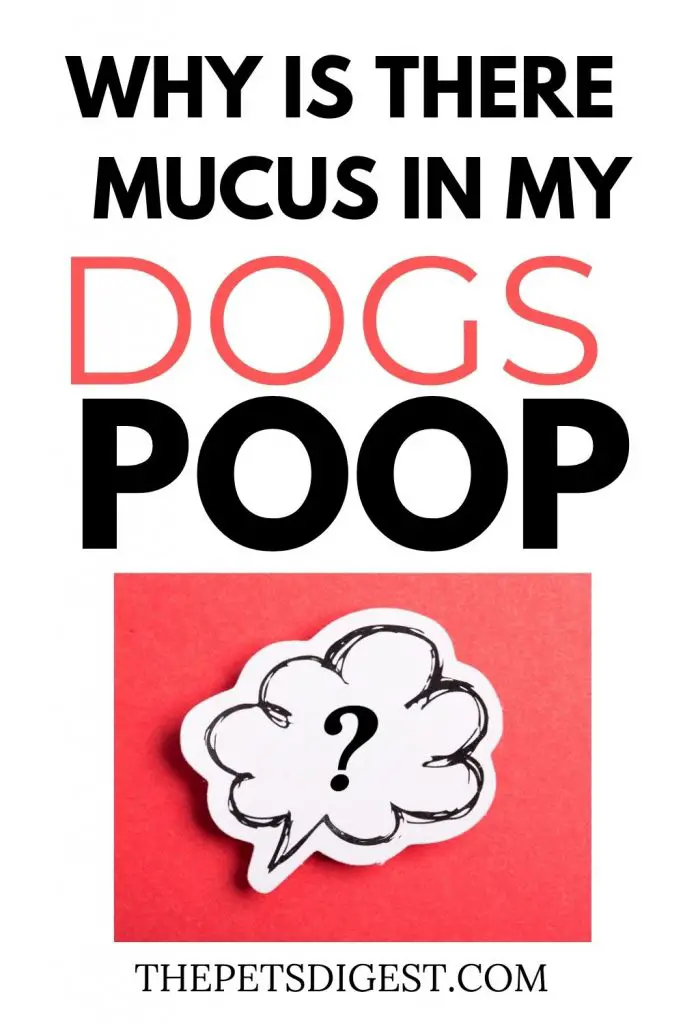
Courtnye or Dr. J is a veterinarian with a passion for writing and her pet babies, Chi-Chi, Cha-Cha and new to the family is Gnocchi
Please note that this article is for general informational purposes only. It is not intended nor implied to be providing medical advice and is not a substitute for such advice. The reader should always consult a health care provider concerning any medical condition or treatment plan. Neither The Pets Digest nor the author assumes any responsibility or liability with respect to use of any information contained herein.





















































































































